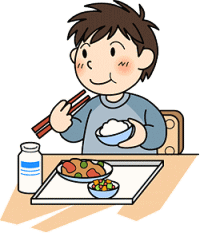| Japan's food self-sufficiency rate andregional food self-sufficiency rate |
Looking at the table of the transition of Japan's food self-sufficiency
rate, we can see that Japan's food self-sufficiency rate (in terms of overall
calories and production value) is currently gradually decreasing.
In 1965, it was 86% in terms of production value, but in 2008, it was 66%, and in terms of calories, it was 73%, but it has dropped to 37%. |
 |
 |
https://www.maff.go.jp
/j/zyukyu/zikyu_ritu/
attach/pdf/012-15.pdf
Changes in the rate of food self-sufficiency
Based on data from the Ministry of Agriculture, Forestry and Fisheries. |
| Food self-sufficiency in the world and Japan |
 |
Please look at the table and graph above. This table shows that Japan
has a very low food self-sufficiency rate among countries in the world.
In terms of food self-sufficiency in terms of production value, Japan has the second lowest rate in this table after the United Kingdom. Australia, which ranks first,
is about twice as high as Japan.
In terms of calorie-based food self-sufficiency, Canada ranks first with 264%, compared to 37% for Japan. Canada's rate is about seven times that of Japan.
Thus, we can clearly see that Japan's food self-sufficiency rate is low compared
to the rest of the world.
|
| Food self-sufficiency of rice |
Table of Food Supply and Demand / Official Report Table of Food Supply
and Demand for FY2008
(e-stat from Ministry of Agriculture, Forestry and Fisheries) URL: https://www.e-stat.go.jp/stat-search/files?page=1&query=
144%20%E5%93%81%E7%9B%AE%E5%88%A5%E3%80%80%E7%B1 %B3%E3%80%80%E5%9B%BD%E5%86%85%E7%94%9F%E7%94%A
3%E9%87%8F&layout=dataset&stat_infid=000031924942&me tadata=1&data=1
"Ministry of Agriculture, Forestry and Fisheries" and URL: https://www.maff.go.jp/j/zyukyu/fbs/attach/pdf/index-9.pdf
Created based on two documents  |
 |
Currently, the food self-sufficiency rate of rice is 109% in terms of self-sufficiency rate by category and 97% in terms of production value, which is a high figure.
However, in 1960, the self-sufficiency rate on a production value basis dropped from 110% to 97%, although it has risen and fallen. The self-sufficiency rate by category has risen and fallen significantly from 109%, but the rate has decreased in many areas. The total food self-sufficiency
rate is 37% on a calorie basis and 66% on a production value basis.
If this trend continues, we will not be able to supply the only rice we
currently have.
|
 |

